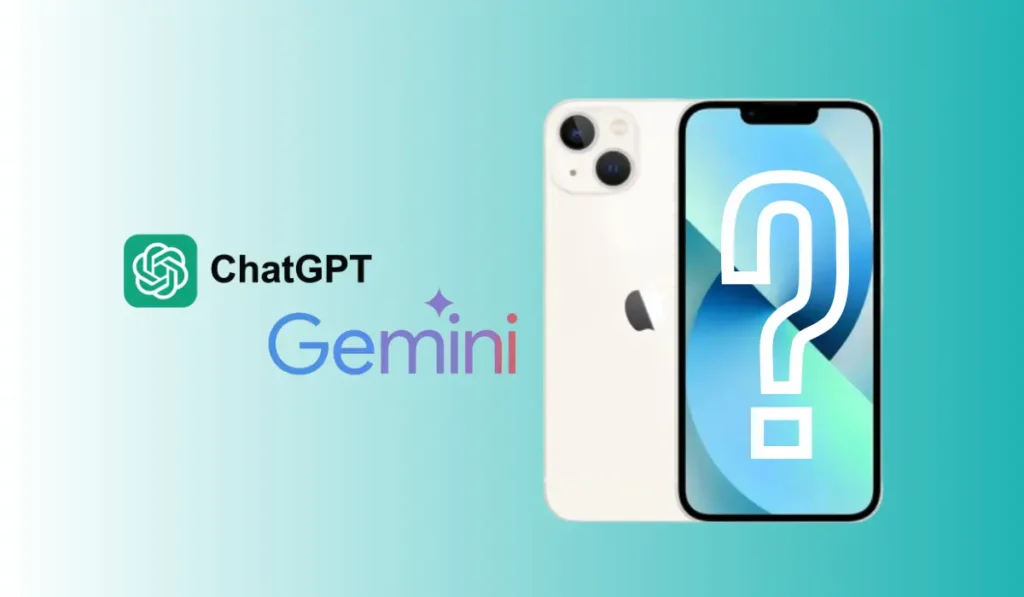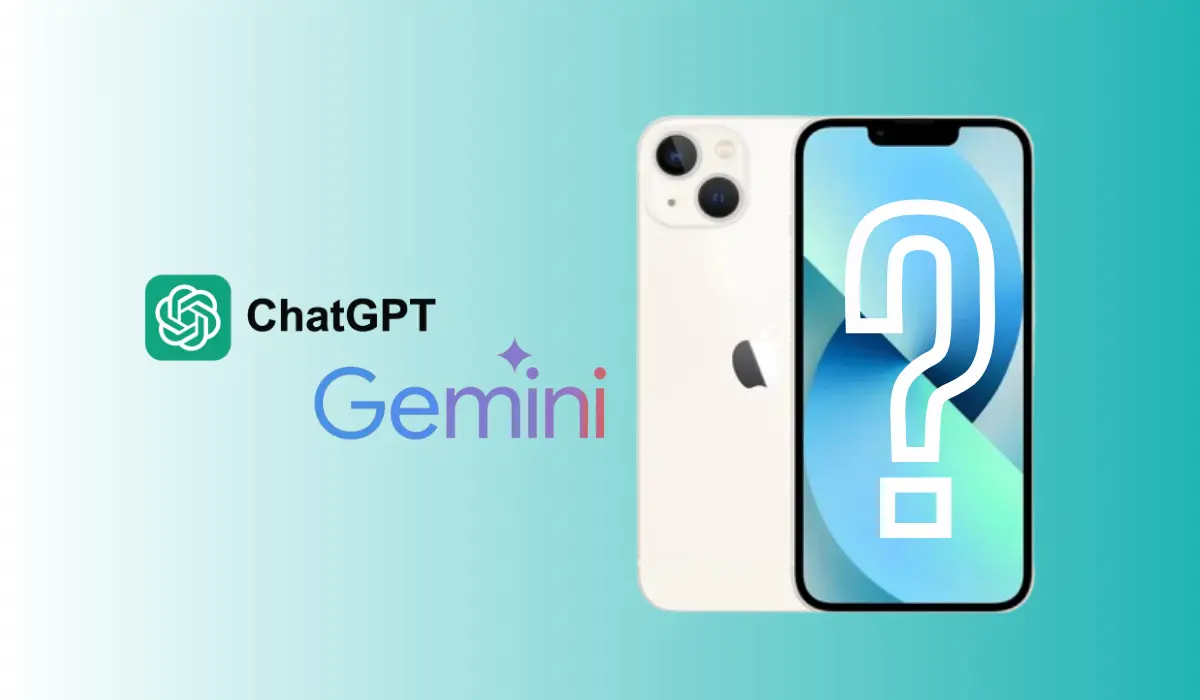Apple AI Eyes External Boost: Google’s Gemini or OpenAI’s ChatGPT in Talks

In a move to strengthen its position in the AI race, Apple is reportedly in “active negotiations” with Google to integrate its next-generation AI system, Gemini, into iPhones, according to a Bloomberg report. OpenAI’s ChatGPT is also a contender as Apple seeks to bolster its Apple AI offerings. This strategic move highlights Apple’s commitment to AI development, while also suggesting their in-house efforts might require an external boost to keep pace with competitors.
The focus of this potential partnership would be on generative AI features, which involve using AI to create new text formats, translate languages, or even generate creative text formats like poems or code. While Apple is developing its own on-device AI models for the upcoming iOS 18 update, a deal with Google would likely target cloud-based features that require more processing power. This approach aligns with Samsung’s strategy of utilizing Google AI in its Galaxy S24 smartphones. The specific branding and implementation details for how Google’s AI tech would be integrated into Apple devices remain undecided.
If a deal with Google comes to fruition, it would significantly expand the reach of Google’s AI tools. With over 2 billion iPhones in circulation globally, Google’s AI would have a massive new audience. However, such a partnership could also be seen as a concession by Apple, suggesting that its own generative AI technology, codenamed Ajax, might be trailing behind competitors. Reports indicate that Apple has been internally testing its own chatbot, Apple GPT, but the overall progress on its AI development seems to be less advanced than what Google or OpenAI have achieved.
The timeline for any potential deal remains unclear. Bloomberg suggests that an official announcement is unlikely before Apple’s annual Worldwide Developers Conference (WWDC) in June 2024. This strategic move by Apple highlights its determination to be a major player in the AI race. While the company is undoubtedly investing in building its own AI capabilities, it appears open to collaborating with external partners to fill any gaps and offer robust AI features to its users.
Apple’s Growing Interest in AI
Apple’s interest in AI has been steadily growing in recent years. CEO Tim Cook has publicly acknowledged the importance of AI and confirmed that Apple is dedicating significant resources to developing its AI capabilities. The company has been hiring AI researchers and experts at an accelerated pace, and its research papers on AI applications have been gaining recognition in the scientific community.
The focus on generative AI aligns with the broader trends in the tech industry. Generative AI has the potential to revolutionize various fields, from creating personalized content recommendations to streamlining software development. By integrating advanced generative AI features, Apple could enhance the user experience on its devices in various ways. Imagine a scenario where Siri, Apple’s virtual assistant, can not only answer your questions but also generate different creative text formats based on your requests, compose emails in a specific tone, or even translate languages in real-time with exceptional nuance.
Potential Challenges and Considerations
While a partnership with Google or OpenAI could propel Apple’s AI offerings forward, there are potential challenges to consider. One major concern is the issue of data privacy. Apple has always prided itself on its commitment to user privacy. Integrating third-party AI technology would necessitate careful consideration of how user data is handled and protected. Apple would need to ensure that any partnership adheres to its stringent privacy standards.
Another consideration is the potential impact on Apple’s control over the user experience. By relying on external AI models, Apple might relinquish some degree of control over how these features function and integrate with its devices. However, Apple’s history of successful collaborations with other companies suggests that it can navigate these challenges and develop a solution that prioritizes both user privacy and a seamless user experience.
The Road Ahead for Apple’s AI Strategy
Apple’s reported discussions with Google and OpenAI signal a crucial juncture in its AI strategy. Whether Apple chooses to develop its own generative AI models entirely, partner with a leading AI provider, or pursue a hybrid approach remains to be seen. Regardless of the specific path it takes, Apple’s commitment to AI is undeniable. With its vast resources and talented team, Apple is well-positioned to make significant contributions to the field of AI in the years to come.
This potential partnership between Apple and Google, or Apple and OpenAI, would be a significant development in the AI landscape. It would not only expand the reach of AI technology but also potentially accelerate innovation in the field as these tech giants collaborate or compete to develop the most advanced AI solutions. As we approach Apple’s WWDC in June, the industry will be watching closely to see if any official announcements regarding its AI plans are made.


